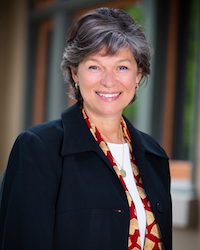In Our Backyard
The Community Foundation aims to be a catalyst and connector for positive change in the community. We provide opportunities for donors to understand the community’s needs and experience the impact of their philanthropy. We review data, research trends and collect feedback from our nonprofit partners. Our donor education series, affectionately called “In Our Backyard,” offers you a chance to expand your knowledge and awareness about the happenings in your local community. You’ll hear from industry experts in a panel forum and engage in a lively Q&A with the audience. We design topics around various issues, including the arts and culture, environment, vulnerable populations, health and human services, education, and more.
The Spring 2024 topics include Mental Health and Families Under Pressure. The fall sessions will be announced soon.
Event Recap: We held the first In Our Backyard event in March, focusing on the crucial topic of mental health. It aimed to elevate our understanding of adults, children, and their families living with a mental health diagnosis. We heard from experts Jill Bolster-White and Roberto Cueva from the Transitions-Mental Health Association, as well as Kamela Proulx from the Atascadero High School Wellness Center. We learned about the increased mental health needs of youth in ourcommunity, the breadth of programming now available to help address the increased needs, and where the gaps inservices exist. We were encouraged to learn of the Central Coast Hotline, our community’s only 24/7, 365-day free, confidential mental health guidance, crisis, and suicide prevention line. Please consider adding the hotline to your phone and sharing it with others at 1-800-783-0607.
Additional Mental Health Information:
The California Healthy Kids Survey is an excellent resource for data on student mental health. You can access their Data Dashboard by clicking here.






